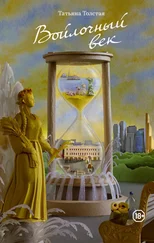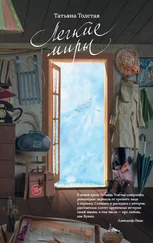“But you know that you will, because the story is already there, it just isn’t visible yet.”
The potato sack brightened and nodded his head. We were speaking the same language. Then he gathered his pages and walked out, treading heavily, blending in with the wall.
I don’t even remember his name. It was a square one. Maybe Carter? Let’s call him Carter.
Every Wednesday I drove back home from the college. It was the same commute as on Monday, but in reverse. The sun took a long time to set, the sky grew darker, early twilight washing out the surroundings before darkness fell; the main thing was not to crash my car and flip over—Sing, Boris, sing, help me out. A long road through the cliffs, then the wide highway, then a country road, and then the final stretch, almost by feel—from unseen hills into unseen valleys, then hills once again, past sleepy villages and lonely, dimly flickering farms. And I was daydreaming about how, who knows, perhaps inside one of those gloomy houses—maybe that one, or possibly this one—another Carter was sitting, his heavy hands resting on the wooden table, the clock ticking as he lowered his heavy ear to the ground, listening to the pea pods sleeping under the snow, and thinking of how a cow is staring at the wall, about how the wax cloth smells, about how the night flows.
And he won’t say anything to anyone, because no one will ask him.
§
Meanwhile, my family quietly fell apart—dried out with time, everyone going their separate way. My kids had families of their own. And nobody needed my house anymore—not the green door with the round brass handle, not the off-white walls, which I painted with my own hands, nor the birch parquet, which began to shine like old gold after I, on all fours, scrubbed it clean of all kinds of crap with a special American oil formulated for scrubbing the parquet clean of all kinds of crap. I also had a glass table, which allowed one to examine one’s knees, an interesting endeavor. And I had purchased an old china cabinet at a flea market; it was the color of dark cherry, with curlicues on top. One of its drawers contained an unexpected bonus: a green-felt-lined case containing two protractors. The unknown, long-gone owner had possibly drafted something—perhaps he’d sketched a patio for his house. And so I decided I too would add a patio to the house, just as David intended.
I went down to the municipal building expecting long lines, misery, inexplicable restrictions, and insurmountable obstacles, but there was nothing of the sort. I paid all the necessary fees, the inspector came and, measuring my house, he gave the patio his approval. He also gave me a list of licensed carpenters, pointing out which ones charged more and which ones less, and advising me against hiring someone just off the street. That was because a licensed carpenter knows that the most important thing about patios is the distance between the balusters. It can’t be less than a certain number of inches, or some kid is bound to get their head stuck in there. The year before, the inspector told me, they’d made the standards stricter, reducing the distance further. Apparently the average American head had grown smaller. And all the licensed carpenters have been notified about this. When the patio is finished, the inspector will come and survey the job.
That’s how simple and boring this process turned out to be. Where were the bribes—the sliding envelope, the lowered gaze, the anxiety that it won’t be accepted or that he’ll take a look and deem it too little? Where were the nervous jitters about removing stolen goods from a warehouse, as I had done in Moscow? I remember how, early one July morning, the construction workers I’d hired took me to a yard near Myasnitskaya Street, to a door, and behind that door were rolls and boxes of supplies; the workers gesturing to it all: Choose whatever you want.
“What is this?” I asked
“A warehouse. Go ahead.”
“Whose warehouse?”
“The military prosecutor’s office. It’s Sunday, so go ahead! But quietly…”
We loaded up on tiles and parquet flooring as well as rolls of mesh, its purpose unknown: I asked, but the workers had no idea, they simply took some because it was there. They found some sort of yellow, bubbled glass and offered some to me as well; the temptation was great, but my renovations did not call for bubbles, so it stayed behind, about which I still feel pangs of regret, and God, what year was it?—1987? Yes, I think so. The early-morning pedestrians were scurrying down streets made wet by watering trucks, July was waking, fresh and luxuriant, life was in full bloom. We stole quite a bit that day, cleared out the prosecutor’s office quite nicely; I still feel the thrill and gratitude.
My Moscow construction guys were certain that I was an actress; all protestations to the contrary were dismissed—they knew better. Hair to the waist, red lipstick, unstructured behavior—must be an actress! In the end, I suppose it didn’t matter, but the problem was that having fallen into a kind of proletarian cultural paradigm I was expected to act the part, though of course I couldn’t possibly live up to standards I wasn’t familiar with. I could see that this offended my workers; everything I did defied their expectations. What, oh what, did they want from me?
Another heroine from their proletarian folklore was the General’s Wife, a character that existed primarily in the fantasies of such men. The myth of the General’s Wife was basically that she—of Yugoslavian negligees and German bubble baths, surrounded by rugs and lacquered dressers, and bursting with passion—is waiting for him, a simple worker, a plumber. She would leap into his arms, perfumed and ready: Take me! I’m yours!
The General is obviously “in the field,” so to speak.
Women, too, were conduits for this lore. Take Galina, who, by the way, hung my wallpaper upside down. She surmised that her crew’s last job had been for a General’s Wife. There was air freshener in the loo—it had to have been a general’s shitter.
“Just imagine: plop—whoosh—orange blossoms.”
Unfortunately, I was already familiar with all the details of Galina’s personal life, her complicated relationship with her lover and his mistresses, none of whom, of course, could hold a candle to her.
“I told him—you listening? I told him: ‘Fine, I’m a slut, I’m a whore, I suck cock, but I am still a WOMAN.’ Was I right or was I right?”
As an actress I was expected to have an artistic opinion: about a woman’s dignity, about the craftiness of men, about fashion.
“Ain’t too bad, right? Sewed it out of two shawls.” Galina was examining her skirt, but, secretly, of course, she was admiring her wizened fifty-something legs. The skirt wasn’t half bad. Galina and her team weren’t even planning on working: they positioned some wooden scaffolds around the room, climbed on top of them, and were playing cards while incessantly and virtuosically cursing. They’d send the elderly Kostya to go get booze, and I should note that Kostya, as a parquet artisan of the highest caliber, consumed only cognac.
“When will you be able to finish hanging the wallpaper?” I’d bleat.
“Can’t do it now! The spackling hasn’t dried! Notice how damp your apartment is? Takes time to dry. And by the way, actress! You owe us two hundred rubles.”
“Two hundred? For what?!”
“Prepayment!”
Around the twelfth century BC, Mycenaean civilization was obliterated by flooding and fires. The fire baked some of the clay tablets that contained accounting notes, thus preserving them. When in the twentieth century AD these tablets were excavated and painstakingly decoded, what wisdom of the ages had scholars discovered? “Carpenter Tirieus didn’t come to work today,” and such like.
Читать дальше






